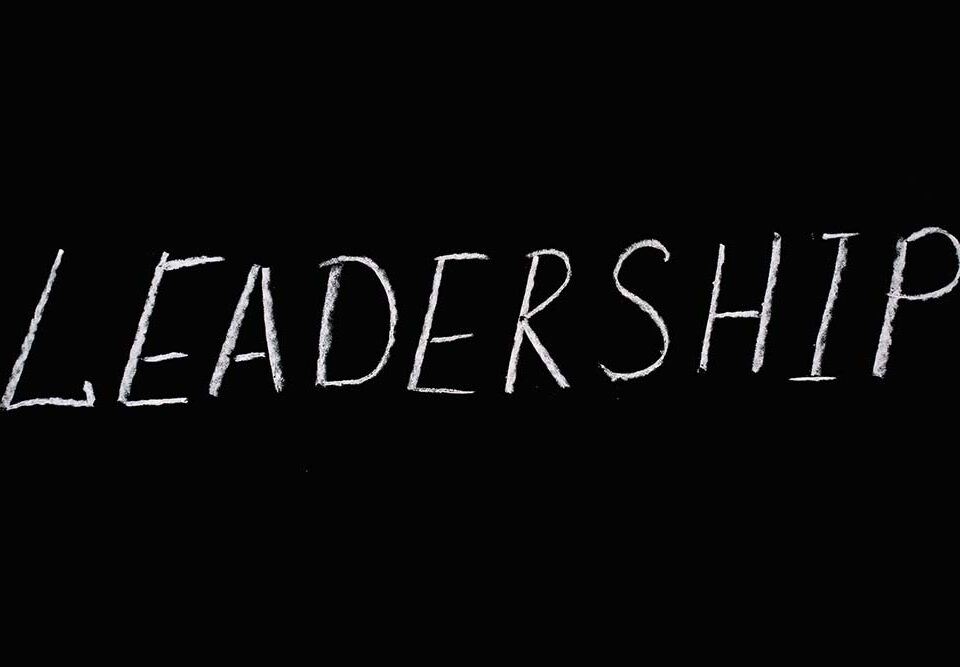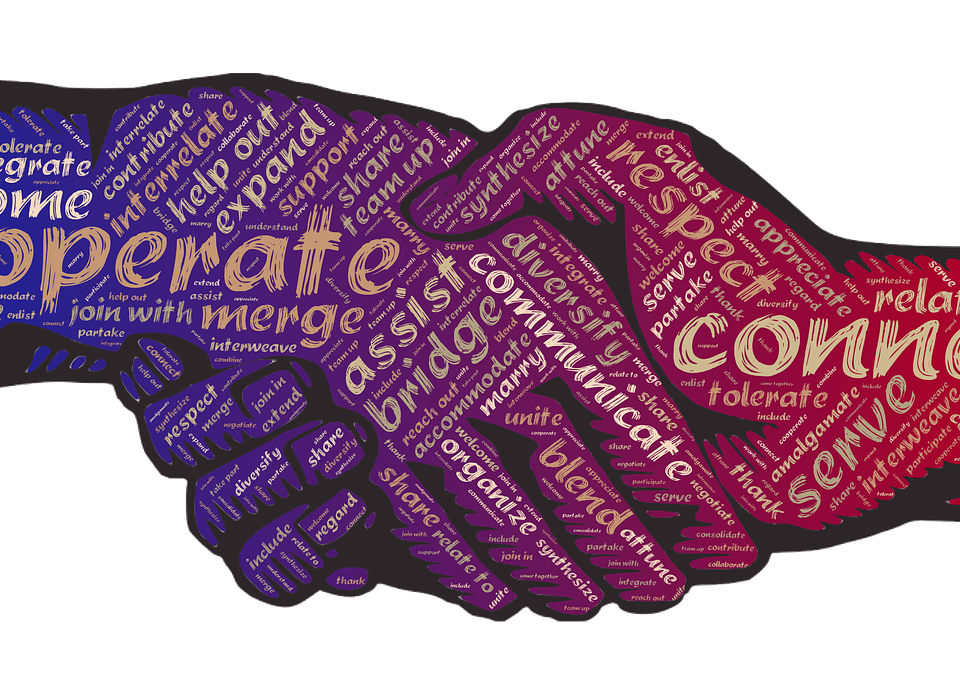- Management Consulting Firm
- +27 11 268 5597
- info@stratalign.co.za
Seven Key Challenges for Leadership for the Future of Work.

The 4D’s of Organizational Culture Transformation
January 19, 2021
From the Influence of Power to the Power of Influence
February 11, 2021Recent events have occasioned major changes in the way in which organizations work. Seven key challenges for leadership arise for the future of work. Leadership has to effectively reimagine the future of work. Before we delve into the seven key challenges, we need to recognize that these changes are not new – they have been accelerated by five global events and movements that cannot be ignored by organizational leaders.
The Five Accelerators:
Accelerator One: The Fourth Industrial Revolution: There is much talk about the Fourth Industrial Revolution (4IR), and in most of the literature about it, the focus is upon technology. What does 4IR mean for people in the workplace?
There is no doubt that 4IR, along with other global events such as the pandemic, has occasioned major transformations in the way we work. The issue is not whether there is a transformation, but it is about how we manage it. In short, my view is that 4IR is more about the transformation of people as it is about technology. This quote from the WEF summarises the issue:
These transformations, if managed wisely, could lead to a new age of good work, good jobs and improved quality of life for all, but if managed poorly, pose the risk of widening skills gaps, greater inequality and broader polarization.” [1]
In short, 3IR was about knowledge, 4IR is about creating space for meaning, connection, collaboration, and sharing to achieve common goals. Effectively managed 4IR has the possibility of making human work more meaningful and collaborative. It has the potential to liberate people from meaningless, repetitive, and soul-numbing work and replacing it with work that inspires growth, reduces inequality, and enhances wellbeing. It enables people to do the work that human beings thought that they could do.
However, 4IR is not an isolated event. It happens amid other significant changes and events that impact the world of work. These include at least the following:
Accelerator Two: The COVID 19 Pandemic. The pandemic has accelerated many of the technology changes implicit in 4IR. It has challenged our ingrained understandings of work and how it can happen while simultaneously promoting and protecting human wellbeing. Current talk of the “new normal” and “working from home” have been occasioned by the pandemic.
Accelerator Three: Climate Change: Climate change challenges the way we do things in our consumption-oriented and wasteful practices. It has forced organizations to reflect more consciously on the future of our planet, the sustainability of resources, and how we should be behaving to reduce the damage we are doing to the environment. This has multiple impacts on the workplace and will change the future of work.
Accelerator Four: The “Me Too” movement: “Me Too” raises critical questions about the gender issues in the workplace and challenges the heart of the patriarchal assumptions which underpin many of our organizations, structures, and communities. This provides an opportunity for us to rethink how we engage around gender issues in the workplace and how the future of work needs to be shaped to ensure an environment in which women can thrive.
Accelerator Five: “Black Lives Matter” movement: The Black Lives Matter movement exposes the reality of systemic racism across the globe and challenges the persistent manifestation of white privilege.
This is not an exhaustive list, and I am sure that other accelerators could be added. The combination of these accelerators provides an opportunity for us to rethink, reframe and reinvent the workplace.
So how do we reinvent effectively?
Firstly, we must understand the changes happening in the world of work.
Changes in the World of Work
The changes in the world of work are well documented by many researchers. Of particular note are the publications of the World Economic Forum whose latest report on the “future of work” has several key findings which we outline below:[2]
- The Pandemic and Automation: The workforce is experiencing a ‘double-disruption’ resulting from the twin factors of the pandemic lockdowns and the embracing of automation.
- The Displacement and Replacement of Jobs: There is an enormous change coming in regards to the nature of work. The WEF projects that nearly 85 million jobs could be displaced for roles that divide human work from machine work, while a new set of 97 million jobs could be created that require skills around machine interaction and algorithmic expertise. This is the challenge of being “future-fit”
- Remote Work: Remote work is now being considered by more companies than ever before. The WEF research indicates that up to 44% of employees can work remotely. This will require substantial changes in the configuration of the workplace the digitization of the workspace.
- Intervention is needed: Only meaningful intervention by the government and business community will avert a widening inequality gap that will most affect women, young people, lower-wage workers, and people with less education. This provides the opportunity for reskilling and upskilling. Interestingly the report asserts that “the public sector needs to provide stronger support for reskilling and upskilling for at-risk or displaced workers”.
- The good news: Despite the high number of jobs that are projected to be displaced in the coming years, business leaders and visionary organizations are prioritizing reskilling measures to retain employees. This is no small undertaking when one recognizes that this may require the reskilling or upskilling of half of the workforce in some environment.
- Differences between Employed and Unemployed Expressed Needs: An interesting observation made by the report is that those who are currently employed express a preference for personal development and a focus on wellness, whilst those who are currently unemployed are looking for digital competencies to enable them to integrate into the changing world of work.
- The Growth of Online Learning: The report reinforces previous research, which points to the growth in demand for multiple forms of online learning opportunities. This provides clues for the upskilling and reskilling processes.
Leading People through the Transformation.
And so we come to the Seven Key Challenges for Leadership for the Future of Work. Some of the thinking below has been influenced by the WEF Report on Shaping People Strategies in the Fourth Industrial Revolution.[3] However, the challenges are broadened to include the impact of the other accelerators outlined above.
The successful management of the 4IR and pandemic driven transformations requires at least the following seven dimensions:
- Reimagine Purpose and Meaning: The importance of this theme has been emphasized over the past few years in work relating ranging from values-based culture and the understanding of what truly motivates people. Briefly, it means that organizations should discover the meaningful difference they are making to the world and ensure that all their people are connected to that meaning.
- Renew Leadership: As organizations operate more distributed business models or lead people working from home, leaders will need to lead from the edge, adopt the right technologies, drive a new vision of organizational culture, and shape innovative people strategies for the future of work. The days of micro-managing, and command and control leadership styles need to be consciously discarded in favor of collaborative, inspiring and empowering approaches.
- Reintegrate Technology: Technology is inevitable and potentially extremely helpful. But it critical that it be regarded as an enabler and its integration into the workplace should always be seen in this light. Two significant factors inhibit the helpful deployment of technology. Firstly, care is not always exercised to ensure that technology is deployed in the interests of the business. The clamour for technology sometimes results in technology for technology sake rather that it being based on a sound business case. Secondly, technology is not always implemented in a way that everyone in the organisation can embrace. It requires a dedicated focus on how to manage change. Despite growing emphasis on change management in technology, organisational design and other projects, there is evidence that changes are not being effectively managed and rather than being energised by change people are being alienated and exhausted by it.
- Rethink the Employee Experience: The increasing complexity of the workforce and the use of technology is calling for a change in the way work is experienced. The current emphasis remains on managing “employee engagement,” which is a narrow and sometimes easily manipulated concept. A shift to managing and measuring the totality of employee experiences will result in a much more holistic focus on the multiple dimensions of the workplace experience. HR plays a vital role in defining, measuring, and enabling a meaningful employee experience in the 4IR.
- Reconstitute Learning and Development: Leadership and HR play a leading role in fostering a culture of lifelong learning in the context of declining demand for specific skills, the emergence of new ones, and the continual requirement for talent to learn, unlearn and relearn. The shift in emphasis in 4IR from knowing to being able to learn and teach is the cornerstone of this change. The reality is that many people in every workforce are not prepared for 4IR. Many have neither the attitude nor the skills to function successfully in this new meaning, collaboration, and technology-driven workplace. The success of 4IR depends, in a great measure, on the ability of organizations to reskill or upskill people to make a meaningful contribution in the new economy. This requires the determination to identify how jobs are changing, which jobs are of the present, which jobs are of the future, and how we can upskill people to do this work. The growing consensus is that this is not only an organizational responsibility. It is a partnership between an organization and its people. Employees (and the unemployed) need to own responsibility for their careers and growth and partner with their organizations to achieve their own career goals.
- Reinterpret Diversity and Inclusion: The issues raised by “Black Lives Matter” and “Me Too” are reflected in almost every workplace. Changing social, economic, and political forces bring an opportunity for organizations to profoundly advance inclusion and diversity. Leadership and HR play a pivotal role in promoting a sense of purpose and belonging in the workforce and equality and prosperity for the communities and regions in which they operate.
- Refocus Personal Development and Wellbeing: The pandemic, 4IR, and other challenges such as climate change also reinforce the need for a greater focus on wellbeing and personal development amongst employees. Again, this is a partnership between an organization and the individuals who work therein. Personal development is a journey that the individual must own, and organizations can contribute to that journey. This requires a shift away from the “sickness” model of employee wellness programs which operate on the principle that we provide support for people when something goes wrong. The new model for employee wellbeing needs to proactively prevent pathologies from arising and provide employees with the tools they need to live lives that meet their needs and desires.
A final comment about implementation; The accelerators mentioned above provide an ideal opportunity for leaders to take decisive action. Each of the seven challenges requires considerable reflection, collaboration, inspiration, and action. This begins with encouraging workplace-wide conversations about the challenges, the consolidation of the conversations into collaborative strategies and plans, and the collective implementation of those plans. These are not challenges that leaders can face in isolation from their people. It is a collaborative journey, and the more collaborative the journey, the better the outcomes will be.
Alan Brews
January 2021
Alan Brews is the CEO of StratAlign, a boutique consultancy that supports organisations in achieving optimal performance within the best possible workplaces. For more information, please visit StratAlign’s website or email then at info@stratalign.co.za
REFRERENCES:




